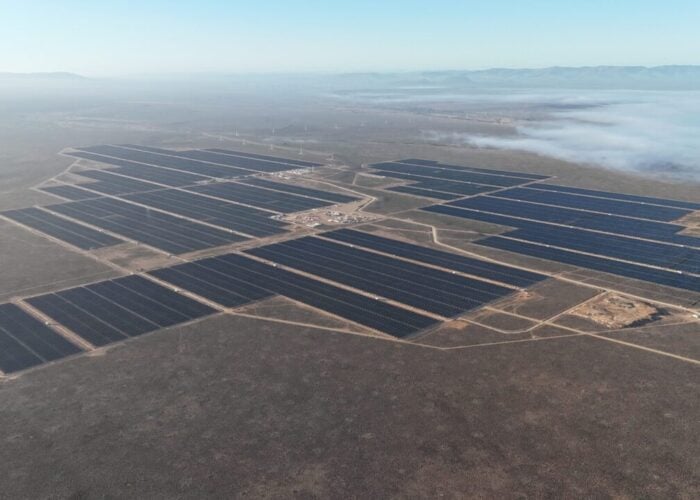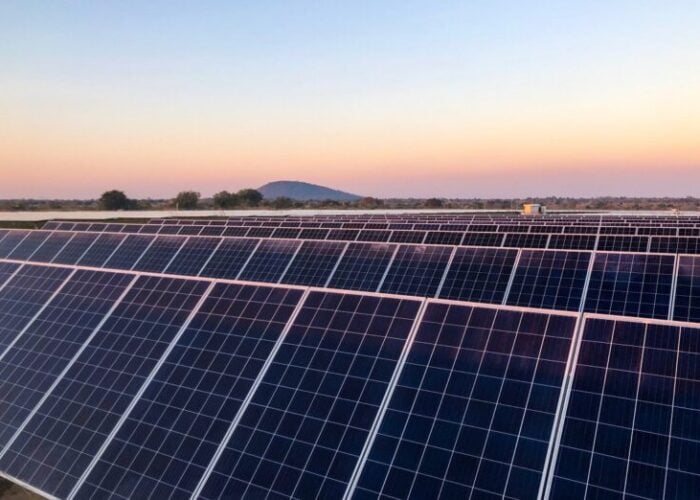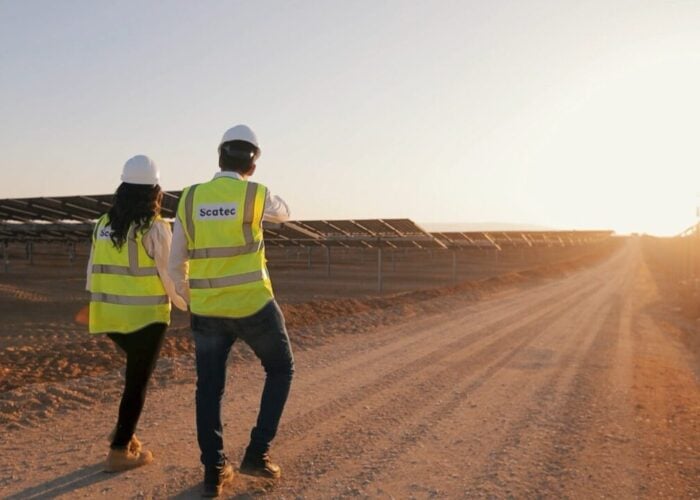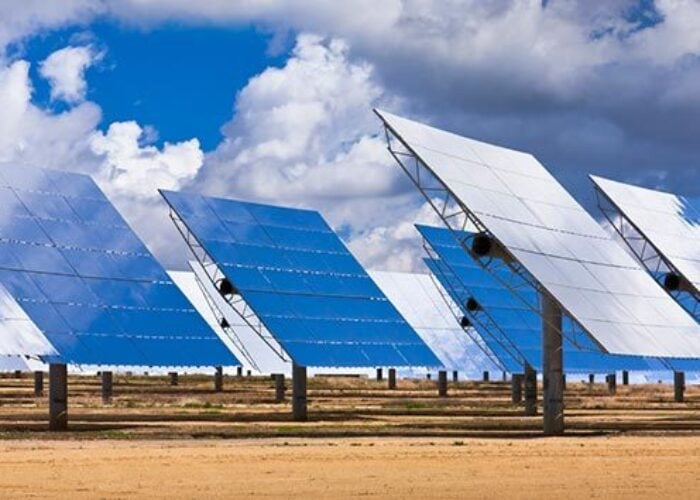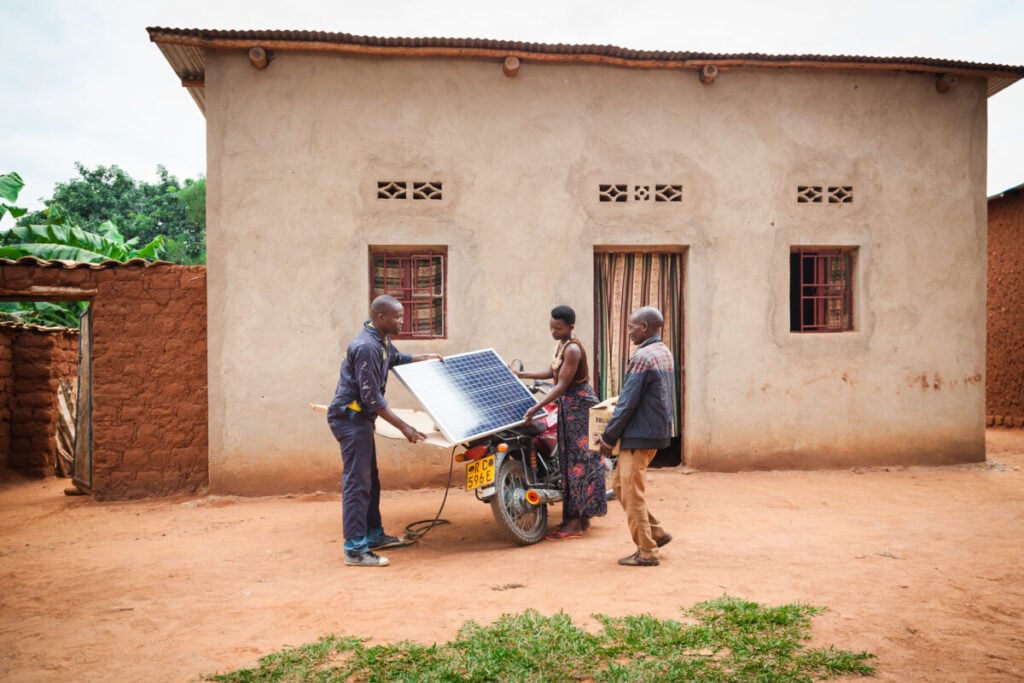
Off-grid solar solutions are emerging as a critical energy source across Africa, especially where grid access remains limited or unreliable. The latest Global Off-Grid Solar Market Report, published by GOGLA, the Energy Saving Trust, and the co-Secretariat of Efficiency for Access, highlights key trends in 2024.
Globally, 9.3 million solar energy kits (SEKs) were sold – slightly more than in 2023 but still below the 2022 peak. East Africa led the growth, and since 2010, these kits have generated US$26.6 billion in combined savings and income for low-income households.
Try Premium for just $1
- Full premium access for the first month at only $1
- Converts to an annual rate after 30 days unless cancelled
- Cancel anytime during the trial period
Premium Benefits
- Expert industry analysis and interviews
- Digital access to PV Tech Power journal
- Exclusive event discounts
Or get the full Premium subscription right away
Or continue reading this article for free
Despite these gains, affordability and market stability remain major hurdles. Appliance sales dropped slightly to 1.98 million units in 2024, with TV sales falling 45% – largely due to slowdowns in Kenya and Nigeria. However, solar generators (48,000 units) and walk-in cold rooms (576 units) made their debut in the tracked data, reflecting a push toward more diverse, productive-use technologies.
As challenges around finance, manufacturing, and policy persist, the question remains: how can off-grid solar in Africa overcome its persistent affordability problem?
Challenges
“Currently, the policy landscape in Africa does not allow for off-grid solar to connect to the mini-grid, which essentially means you are running two power systems that don’t talk to each other,” Patrick Tonui, head of policy and regional strategy at GOGLA told PV Tech.
This is exacerbated by fragmented policy environment, under which independent solar systems including off-grids, mini-grids and rooftop solar are disconnected from the national grid, which limits efficiency and economic viability. Mini grids, acting as small, localised units, tend to operate in “policy grey zones with unclear regulations,” making it difficult for providers to attract capital or plan long-term investments.
Investment is another core challenge. “Financial sustainability, and profitability, and scaling investments are key challenges in the continent,” pointed Tonui. Off-grid solar providers often serve remote, low-income communities on a commercial basis, without the public subsidies available to national utilities. This makes it difficult to attract private capital into a sector operating in high-risk, low-return environments. To scale impact, blended finance, patient capital, and stronger public-private partnerships are urgently needed.
These hurdles lead to problems surrounding access and affordability. Off-grids located in “rural or hard-to-reach communities have no infrastructure and low demand because the ability for the consumers to pay is low due to poverty,” said Tonui. These communities are often excluded from public financial support. Yet, the sector is precisely trying to reach these “most difficult places,” to serve the communities that have the least ability to pay.
Policy setbacks and what governments must do
According to Tonui, import taxes are central to making solar solutions unaffordable for many countries across Africa. Governments “end up adding to up to 40% tax, making markets completely inefficient,” said Tonui. In some cases, governments impose taxes on solar “because it is essentially taking away business from the utility,” further stalling adoption.
These challenges reflect a deeper ecosystem issue leading to low competitiveness due to poor infrastructure, disjointed industrial policies, and high distribution costs. This continues to hinder Africa’s transition to sustainable energy.
The governments need to take a “clear look” at why current policy approaches are not working, Tonui said. “Many countries will adopt approaches of green investment zone or a special economic zone to attract investment. But they are not taking a hard look about the cost to production, the ease of access to the commodities, the inputs needed, the ability to efficiently produce, and competitiveness,” Tonui pointed. While governments declare themselves open for business through tax holidays and industrial enclaves, the underlying issues of import logistics, high production costs, and weak internal markets persist throughout the continent.
Meanwhile, regional efforts toward tax harmonisation under the African Continental Free Trade Area (AfCFTA) remain “premature,” though some regional blocs are making progress.
“The East African Community has had harmonised policies for over 10 years now, and several regions are also exploring regional approaches.” Still, without accessible, affordable capital, policies falter. “Being able to provide much needed low-cost capital to support investments in infrastructure, equity, debt and all local currency remains unavailable,” Tonui noted. Currency devaluations, rising debt-servicing costs, and reliance on foreign financing further strain the system. “Unless the governments can tap into pension funds or use other mechanisms to increase local currency financing, everything else is futile.”
Toward inclusive and equitable energy access
For solar to truly thrive across Africa, it must be fully supported and not sidelined. “For renewable energy to thrive, it needs complete policy support,” said Tonui. Too often, the sector is “constrained or not given equal treatment in terms of access to current infrastructure funding,” as governments prioritise protecting utilities.
Emphasising the importance of equity Tonui concluded, “Affordability and poverty are huge and the private sector by itself cannot mitigate it, government aid is imperative.”


